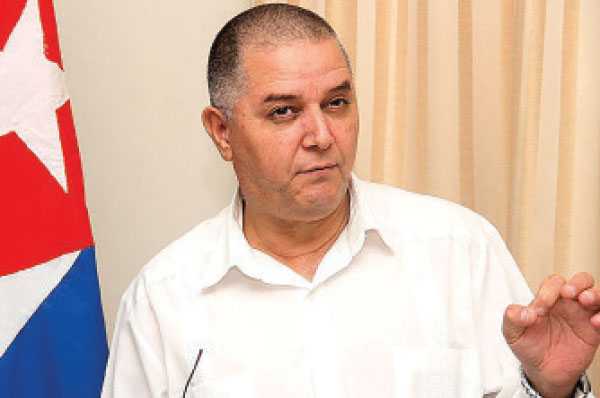Cuba calls for a new international economic order
Cuban people continue to heave under the burden of the US imposed financial, economic and commercial blockade, Cuban Ambassador to Botswana Juan Carlos Arencibia Corrales has said.
The ambassador said in 2014 the decision to re-establish diplomatic relations was adopted by Cuba and the US governments. “However, the economic, commercial and financial blockade against Cuba persists bringing damages and hardships on the Cuban people, and standing as the main obstacle to our country’s economic development, while affecting other nations due to its extraterritorial scope, and hurting the interests of American citizens and companies. Such policy is rejected by 191 United Nations member states, including Botswana, that demand its removal”, he said.
Corrales explained that now a long and complex process begins towards the normalisation of relations that will only be achieved with the end of the blockade against Cuba “the return to our country of the territory illegally occupied by Guantanamo Naval base; the cessation of radio and TV broadcast, and of subversion and destabilisation programmes against the Island”.
He said that during the last 54 years the Cuban people put up heroic and selfless resistance, going forward facing and overcoming many obstacles, as a result of application by 11 US consecutive administrations of the longest extraterritorial and inhuman economic war ever applied against any country together with many other forms of aggressions.
“Perhaps of the said difficulties, Cuba has been able to advance in its socioeconomic, political, cultural, sports and scientific development and in many other spheres. At the same time, Cuba has been able to fulfill the Millennium Development Goals. The country has been able to offer its modest cooperation to other developing nations in several areas, something we shall continue to do to the extent of our limited capabilities”.
The ambassador explained that in 2015 the bilateral political dialogue with several countries was strengthened. It was evidenced in the visits paid to Cuba by 184 foreign delegates, 25 of them presided over by head of states and government, from all regions of the world. “Cuba is in favour of adoption as soon as possible of the concrete commitments in terms of development assistance.
It would be also necessary to build a new international financial architecture, remove monopoly on technology and knowledge and change the present international economic order.
There has been wars of aggression and interference in the internal affairs of the States; the ousting of sovereign governments by force, the so-called ‘soft coups’ and the re-colonisation of territories; and, all of these upgraded with new ingenious actions employing new technologies, and under the pretext of alleged human rights violations”, Corrales stated in Gaborone during the celebration of the Cuban National Day (57th Anniversary of the Cuban Revolution) and the 39th Anniversary of the re-establishment of diplomatic relations between Botswana and Cuba.
He emphasised that the militarisation of cyberspace, and the covert and illegal use of information and communications technologies to attack other States is unacceptable, the same as the distortion of the advancement and protection of human rights used with selective and discriminatory approach to validate and impose political decisions.
On relations with Botswana, he said the two countries were also celebrating the 30th anniversary of uninterrupted Cuban medical assistance to Botswana. He said over three decades Botswana and Cuba have enjoyed excellent bilateral cooperation in different sectors, like health, education and sports.
The ambassador also noted the exchange of reciprocal support in the multilateral field at the United Nations, the Movement of Non Aligned Countries, the Group of 77, among other important international organisations and consultation forums.
“Currently there are working in Botswana 87 Cuban health professionals and in the near future there are supposed to arrive in the country another group of volunteers, in order to complete the agreed amount of 102. In the education sector, along the years Botswana also has been receiving the scholarships for different careers including medicine. Currently there are studying in Cuba more than 30 Batswana students and several of them have already graduated from Cuban universities.”






